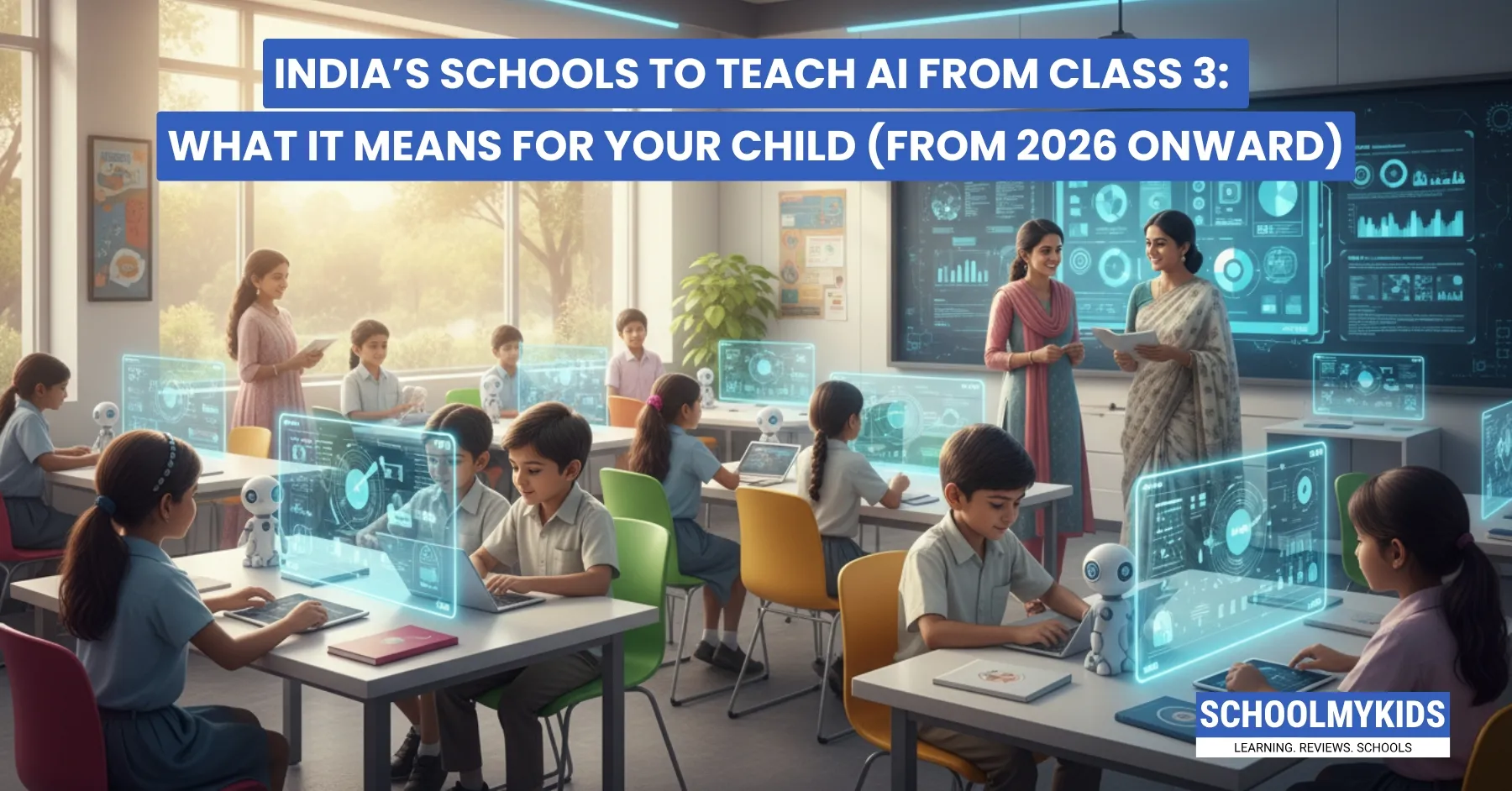India is preparing for a significant shift in its schools. From the 2026–27 academic session, Artificial Intelligence (AI) will become a regular subject for children from Class 3 onwards. This is not a tech story for grown-ups; this is for every eight-year-old who will soon learn about AI alongside maths and English. For parents, this news opens up a mix of hope, questions, and the need to prepare for a future where technology is intertwined into everyday life.
What’s Changing in India’s Schools?
The Education Ministry and CBSE are working hard to bring AI to every classroom, in line with the National Education Policy (NEP) 2020. Until now, AI has mostly been available to older students as an elective from Class 6 onwards, with some 15-hour introductory modules. By 2026, every student in Class 3 and above will start learning about AI in age-appropriate, interactive ways. The goal is clear: make AI a basic skill for everyone, not just techies.
Why Is This a Big Deal?
Look around and you will realise that AI isn't just in science fiction. From voice assistants at home to smart learning apps, many Indian children already use AI every day, even if they don’t realize it. By introducing AI early, the education system wants to help kids understand how these smart tools work, how to use them responsibly, and how they’re shaping the world.
This is more than learning a new subject. It’s about making children confident, curious, and prepared for a digital society. Even “basic” AI knowledge could soon be as important as knowing how to read or add.
What Will Kids Actually Learn?
Don’t worry, as third graders won’t be coding robots right away! The early primary lessons will focus on:
- What is AI? Making sense of how gadgets and apps seem “smart”
- Recognizing patterns, solving puzzles, and spotting logic tricks
- The basics of data, privacy, and using technology safely
- Creative and critical thinking—asking why, not just how
As children grow, the content will get richer, teaching problem-solving, ethical decisions (like fairness and bias in tech), and practical digital skills.
How Are Teachers Preparing?
The biggest challenge is not just introducing new books or lessons, but training over one crore teachers across India to teach AI confidently. The government is running pilot programs where teachers use AI tools for lesson planning and classroom activities. The idea is to help teachers get comfortable first, so they can spark excitement and curiosity in their students.
What Does This Mean for Your Child?
This change is about much more than just scoring well in exams. Here’s what it means for children:
- Kids will grow up speaking the language of tomorrow, including AI, data, ethics, and problem-solving
- Future jobs, even in fields like medicine, business, or the arts, will require AI know-how
- Early exposure to these concepts builds confidence (not fear) around technology
- Children will learn to question, create, and adapt, and not just memorize
The aim is to turn kids into creators, not just consumers, of technology.
Impact on Families, Society, and Jobs
Introducing AI in primary schools is a game-changer, not just for students, but parents, too, will need to stay updated. It may spark conversations at home about safe gadget use, digital responsibility, and the wonders (and worries) of smart tech.
In the big picture, this move supports economic growth. Reports show that while some traditional jobs may disappear, many new ones, especially in AI, data, design, and healthcare, will open up. Knowing AI will be a must-have skill, not just a bonus.
Imagine students in 2035, they’ll graduate into a world where AI is as normal as the internet is today.
What Can Parents Do?
- Talk to your children about AI in simple ways, like asking how apps like YouTube or voice assistants make decisions
- Encourage questions and exploration, not just screen time
- Stay updated; read the school’s circulars, attend meetings, and even try out some fun AI activities at home
- Don’t stress about coding; help your child enjoy learning new ideas, patterns, and games
Conclusion
From 2026 onward, AI will become a school-time reality for all Indian children from Class 3. It’s not just about keeping up with the world; it’s about making sure our children have the confidence, curiosity, and skills to succeed in a digital age. The journey has begun, so let’s walk with our kids, hand in hand, into a future filled with possibility.








Be the first one to comment on this story.